| Origem | Literatura Estrangeira |
|---|---|
| Quantidade de Páginas | 532 |
| Acabamento | Capa Comum |
| Autores | Abdul Khaliq |
| Idioma | Inglês |
| Edição | 0 |
| Selo | Ishi Press |
 O meu é mais barato vs Você quer ir para o céu?
O meu é mais barato vs Você quer ir para o céu?
Editora Viseu
R$ 44,90 à vista Meia-Lua Inteira: Poemas cotidianos
Meia-Lua Inteira: Poemas cotidianos
Editora Viseu
R$ 40,90 à vista Sorrisos Amarelos: Histórias de jovens mulheres orientais no Brasil
Sorrisos Amarelos: Histórias de jovens mulheres orientais no Brasil
Editora Viseu
R$ 32,90 à vista Jornalismo na Amazônia
Jornalismo na Amazônia
Editora Viseu
R$ 44,90 à vista Hortênsia azul
Hortênsia azul
Editora Viseu
R$ 35,90 à vista Step-By-Step Arabic Language
Step-By-Step Arabic Language
Nisreeen Beshqoy
R$ 427,51 ou até 3x sem juros Reading First
Reading First
Prosperity Education
R$ 132,72 ou até 2x sem juros Japanese Kanji Made Easy
Japanese Kanji Made Easy
Lingo Mastery
R$ 82,54 à vista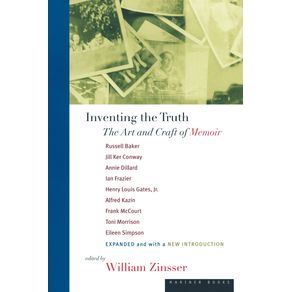 Inventing the Truth
Inventing the Truth
HARPERCOLLINS
R$ 113,91 ou até 2x sem juros The Key to All Joyo Kanji
The Key to All Joyo Kanji
Indy Pub
R$ 301,12 ou até 3x sem juros Learn to Read in Japanese, Volume IV
Learn to Read in Japanese, Volume IV
Roger Lake
R$ 176,83 ou até 3x sem juros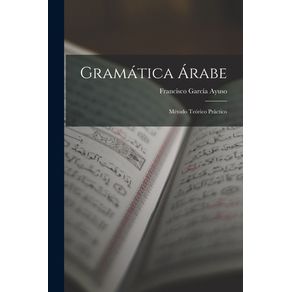 Gramática Árabe
Gramática Árabe
Legare Street Press
R$ 150,17 ou até 3x sem juros Syntactic Structures
Syntactic Structures
Martino Fine Books
R$ 129,55 ou até 2x sem juros Reading Tolstoys The Death of Ivan Ilyich in Russian
Reading Tolstoys The Death of Ivan Ilyich in Russian
Indy Pub
R$ 147,47 ou até 2x sem juros Ukrainian Handwriting Book
Ukrainian Handwriting Book
Lulu Press
R$ 158,89 ou até 3x sem juros Iniciação à sintaxe do português
Iniciação à sintaxe do português
Companhia das Letras
R$ 59,90 à vista Meia-Lua Inteira: Poemas cotidianos
Meia-Lua Inteira: Poemas cotidianos
Editora Viseu
R$ 40,90 à vista Jornalismo na Amazônia
Jornalismo na Amazônia
Editora Viseu
R$ 44,90 à vista Hortênsia azul
Hortênsia azul
Editora Viseu
R$ 35,90 à vista One Dream Only / Il mio unico sogno (Libro bilingue
One Dream Only / Il mio unico sogno (Libro bilingue
Draft2Digital
R$ 104,71 ou até 2x sem juros Japanese Kanji Made Easy
Japanese Kanji Made Easy
Lingo Mastery
R$ 82,54 à vista Inventing the Truth
Inventing the Truth
HARPERCOLLINS
R$ 113,91 ou até 2x sem juros Million Dollar Outlines
Million Dollar Outlines
WordFire Press LLC
R$ 139,62 ou até 2x sem juros Writing Conversational Korean for Beginners
Writing Conversational Korean for Beginners
Gooseapple Books, LLC
R$ 213,00 ou até 3x sem juros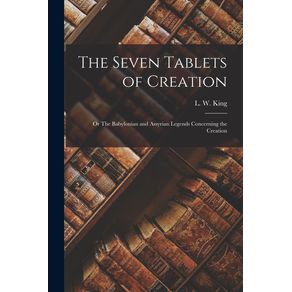 The Seven Tablets of Creation
The Seven Tablets of Creation
Legare Street Press
R$ 152,29 ou até 3x sem juros Двойник
Двойник
IndoEuropeanPublishing
R$ 227,90 ou até 3x sem juros Syntactic Structures
Syntactic Structures
Martino Fine Books
R$ 129,55 ou até 2x sem juros Reading Tolstoys The Death of Ivan Ilyich in Russian
Reading Tolstoys The Death of Ivan Ilyich in Russian
Indy Pub
R$ 147,47 ou até 2x sem juros Ukrainian Handwriting Book
Ukrainian Handwriting Book
Lulu Press
R$ 158,89 ou até 3x sem juros Listening C2
Listening C2
Prosperity Education
R$ 127,05 ou até 2x sem juros Da floresta - Vivências da ayahuasca na cidade
Da floresta - Vivências da ayahuasca na cidade
Telha
R$ 52,00 à vista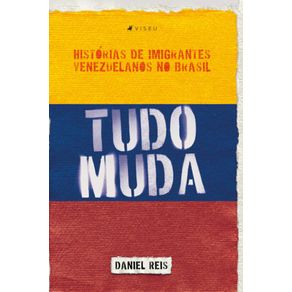 Tudo muda; Histórias de imigrantes venezuelanos no Brasil
Tudo muda; Histórias de imigrantes venezuelanos no Brasil
Editora Viseu
R$ 41,90 à vista Da prensa ao jornalismo ambiental
Da prensa ao jornalismo ambiental
Editora Viseu
R$ 44,90 à vista Sorrisos Amarelos: Histórias de jovens mulheres orientais no Brasil
Sorrisos Amarelos: Histórias de jovens mulheres orientais no Brasil
Editora Viseu
R$ 32,90 à vista Jornalismo na Amazônia
Jornalismo na Amazônia
Editora Viseu
R$ 44,90 à vista Comunicação no ambiente de trabalho: 6 habilidades sociais urgentes para os profissionais de alta performance
Comunicação no ambiente de trabalho: 6 habilidades sociais urgentes para os profissionais de alta performance
Editora Viseu
R$ 51,90 à vista Quer que desenhe
Quer que desenhe
Editora Viseu
R$ 39,90 à vista Korean Picture Dictionary Coloring Book
Korean Picture Dictionary Coloring Book
Lingo Mastery
R$ 122,57 ou até 2x sem juros Million Dollar Outlines
Million Dollar Outlines
WordFire Press LLC
R$ 139,62 ou até 2x sem juros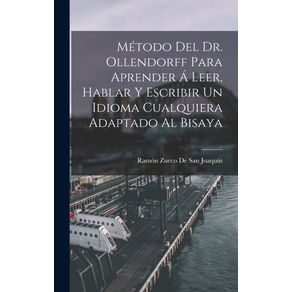 Método Del Dr. Ollendorff Para Aprender Á Leer, Hablar Y Escribir Un Idioma Cualquiera Adaptado Al Bisaya
Método Del Dr. Ollendorff Para Aprender Á Leer, Hablar Y Escribir Un Idioma Cualquiera Adaptado Al Bisaya
Legare Street Press
R$ 213,40 ou até 3x sem juros The Seven Tablets of Creation
The Seven Tablets of Creation
Legare Street Press
R$ 152,29 ou até 3x sem juros Vocabolario Italiano-latino ...
Vocabolario Italiano-latino ...
Legare Street Press
R$ 237,50 ou até 3x sem juros Conversational Korean Grammar
Conversational Korean Grammar
Gooseapple Books, LLC
R$ 208,76 ou até 3x sem juros Sherlock Holmes and a Scandal in Shanghai
Sherlock Holmes and a Scandal in Shanghai
Mind Spark Press LLC
R$ 114,37 ou até 2x sem juros Ukrainian Handwriting Book
Ukrainian Handwriting Book
Lulu Press
R$ 158,89 ou até 3x sem juros